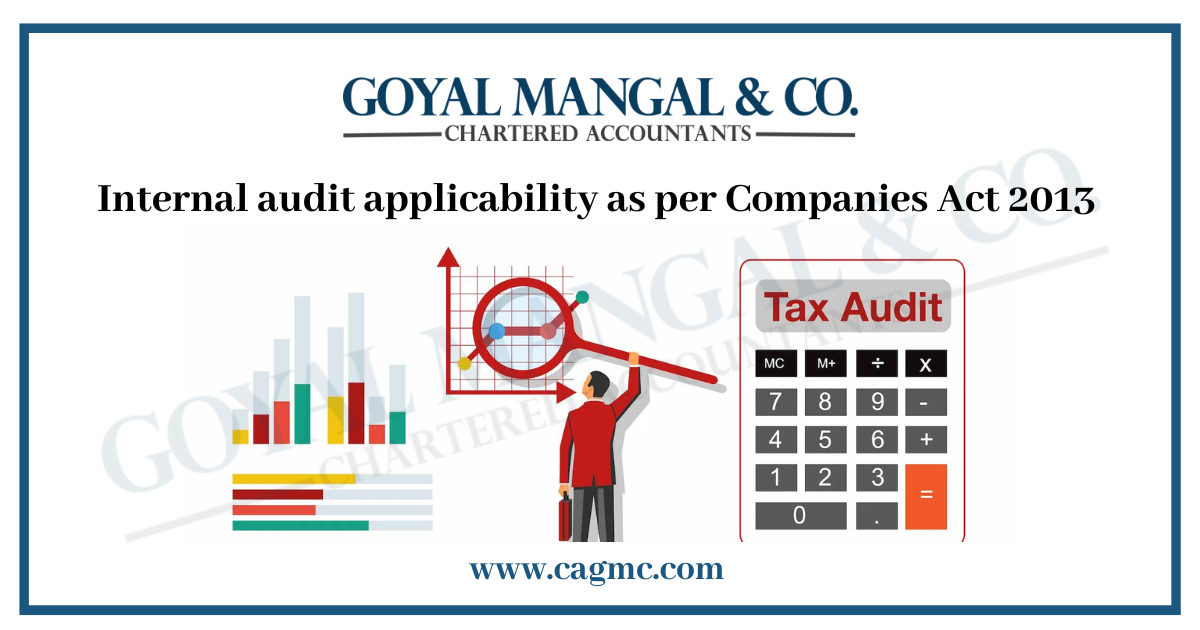

Internal auditing refers to the process of evaluating an organization’s internal controls, procedures, processes, and methods. The objective of the internal audit is to check the effectiveness of the operating standards established by the organization. It is carried out either by an employee of the organization or by an expert appointed by the board of directors. Let us discuss the internal audit applicability under the Companies Act of 2013.
Table of Contents
An internal audit is a management tool whose aim is to verify the suitability of internal controls and controls in the company. It is carried out either by the employees of the organization or by a professional firm entrusted with this purpose.
An independent and specialized internal audit function enables both management and the supervisory body (e.g. board of directors, audit committee) to fulfill their responsibilities. It brings a systematic and disciplined approach to evaluating the effectiveness of the design and performance of internal control systems and risk management processes. Such an assessment of internal control systems and risk management processes by the internal audit team assures management and the supervisory body that the organization’s risks have been appropriately mitigated.
The appointment of an internal auditor can only be made by a resolution passed at a meeting of the board of directors as provided in rule 8 of the Companies (Meetings of the Board of Directors and its powers) Rules, 2014. Therefore, the company is also required to file Form MGT-14 with the Registrar within 30 days from the date of the resolution board of directors. However, such a requirement to file a resolution with the ROC does not apply to private limited companies.
Companies must follow the procedure below to appoint an internal auditor:
Section 138 and Rule 13 of the Companies (Accounts) Rules 2014 provide for internal audit. The following companies will be required to appoint an internal auditor:
The applicable internal audit threshold for companies in tabular form is given below-
| Details | Listed companies | Unlisted public companies | Private Limited companies |
| Paid-up share capital | Internal audit is mandatory without any threshold | Rs 50 crores or more | NA |
| Turnover | Rs 200 crore or more | Rs 200 crore or more | |
| Outstanding loans from banks or financial institutions | Exceeding Rs. 100 crores | Exceeding Rs. 100 crores | |
| Outstanding deposits | Rs 25 crores and above | NA |
The internal audit report must be sent to the board of directors of the company. It is the internal auditor’s responsibility to report risk management issues and identified internal control deficiencies. Must report directly to the Audit Committee/Board of Directors and suggest recommendations to improve the functioning of the company in terms of effective and efficient performance.
Note: The Company’s internal auditor is authorized to inspect the minutes of the board of directors and any of its committees, as well as the minutes of general meetings if he deems it necessary for the performance of his duties.
Section 138 does not establish any specific criminal provisions. Thus, the criminal provisions mentioned in Section 450 would be applicable in case of violation of Section 138.
Accordingly, a fine of up to Rs.10, 000/- will be imposed on the company and any officer of the company in default for violation. An additional fine of Rs 1,000 every day will also be imposed if the violation continues. Offenses under Section 138 are compoundable under Section 441 of the Companies Act, 2013.
Because internal auditors are specialists in understanding organizational risks, they help management understand these topics and offer recommendations for improvement. This is why, although internal audit is not mandatory for everyone, businesses often perform it to evaluate the effectiveness of internal control, the reliability of the financial system, the efficiency of business processes, etc.